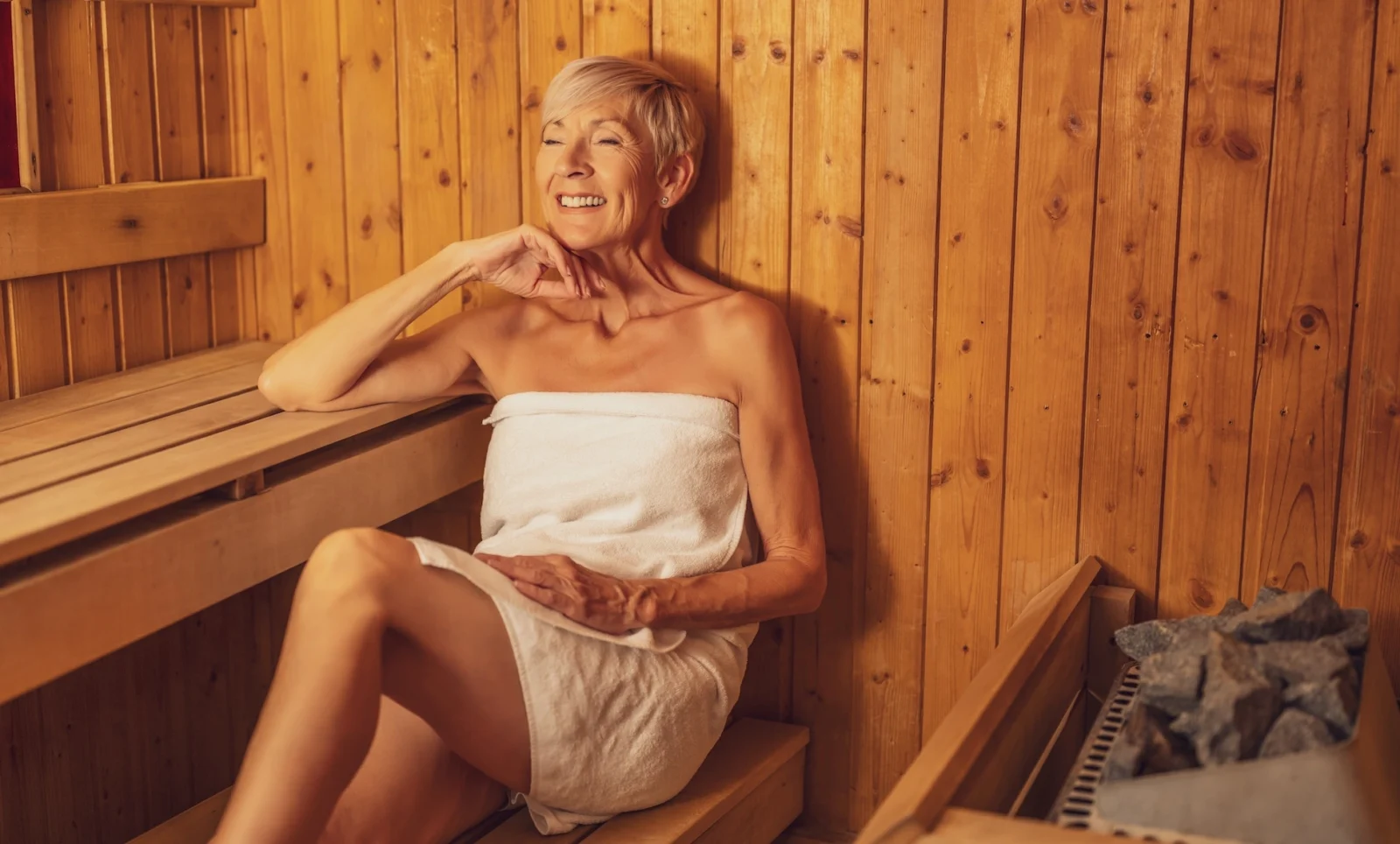Regular Sauna Use May Lower Risk of Psychosis, Study Finds

Study participants who used a sauna at least three times per week had a significantly lower risk of developing psychotic disorders than those who did so less frequently
It turns out that relaxing in a heated room may do more than offer a respite from the daily grind and soothe muscles — it could reduce the risk of developing psychotic disorders such as schizophrenia.
A new study, published in the Journal of Psychiatric Research and supported by the Finnish Foundation for Cardiovascular Research in Helsinki, Finland, analyzed data from the Kuopio Ischemic Heart Disease (KIHD) cohort, which consisted of 2,682 middle-aged and older men aged 42 to 61 at the start of the investigation.
Between March 1984 and December 1989, baseline assessments were conducted to assess sauna bathing habits, cardiorespiratory fitness levels, and other health factors. The group was then divided into two groups: those who used the sauna twice or less per week and those who used it three to seven times per week. They were also evaluated for cardiorespiratory fitness while exercising on a cycle ergometer, and they were followed for a median of 25 years to monitor the incidence of psychotic disorders.
Ultimately, researchers discovered that frequent sauna bathing was associated with a lower risk of psychosis, with participants who used the sauna three to seven times per week having a significantly lower risk (51%) of developing psychotic disorders than those who used it less frequently.
Participants with high sauna use and medium-to-high fitness levels had the lowest risk of psychosis. However, even participants with high sauna use and low fitness levels still showed a substantial reduction in risk (74%), demonstrating that the sauna may provide more than heat but a balm for the brain.
“Having frequent baths and high fitness levels (determined by regular physical activity) can each reduce the risk of mental health conditions such as psychosis,” Setor K. Kunutsor, one of the study’s co-authors, explained to PsyPost, adding that it appears frequent sauna baths might have more beneficial impact on mental health conditions than having high fitness levels.
“Given the wide-known health benefits associated with regular physical activity and high fitness levels, we expected high fitness levels to have more impact,” Kunutsor told the publication, indicating his surprise of the results.
The study’s authors note that their preliminary findings could lead to more in-depth research into the physiological and psychological mechanisms by which sauna bathing affects mental health.
Wellness studios offering infrared saunas and communal bathhouses have tapped into the ancient traditions of heat and added a modern twist as a place to unwind from the screen-based world.
Sauna House, a growing communal bathing franchise, offers clients a “digital detox,” while Othership, an immersive sauna and ice bath brand, intends to open locations in every city in North America. Wellness franchise Perspire Sauna Studio is expanding rapidly with 55 locations open and over 200 franchise licenses signed.
Courtney Rehfeldt has worked in the broadcasting media industry since 2007 and has freelanced since 2012. Her work has been featured in Age of Awareness, Times Beacon Record, The New York Times, and she has an upcoming piece in Slate. She studied yoga & meditation under Beryl Bender Birch at The Hard & The Soft Yoga Institute. She enjoys hiking, being outdoors, and is an avid reader. Courtney has a BA in Media & Communications studies.



